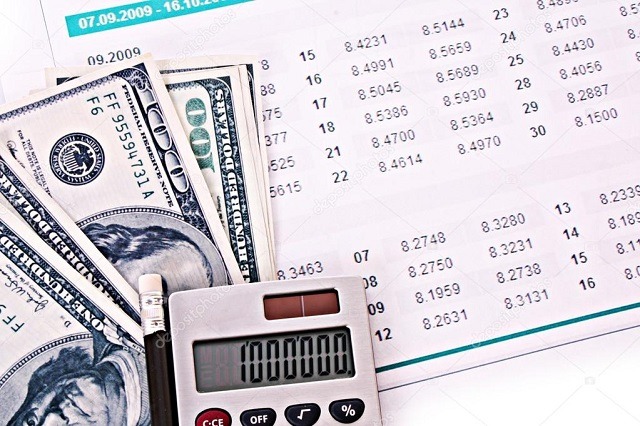How to choose a reliable forex broker
How to choose broker? To trade in the foreign exchange market, it is imperative to choose a reliable forex broker. After all, would you hand over $5000 on the street to someone who you have never met before, if they were to offer you their brokerage services in commodities and stocks? You probably wouldn't, because you'd expect some kind of independent confirmation of this individual's claims with respect to his capability and authorization as a certified a broker. And the opposite course would be sheer folly, of course, since who doesn't know the popularity of making a living from scamming people these days?
Strangely enough, when the "person" in the above paragraph is a website which offers to mediate currency trading, many people are a lot more trusting of the claims. The fine design of a website, the implementation of a trading software, the costs of creating a customer support staff convince many beginners that a company which makes these investments into creating the infrastructure for such an enterprise is unlikely to be run by thieves, crooks, liars, and their various other kinds.
Important information: "Forex, CFD are complex instruments and come with a high risk of losing money rapidly due to leverage. Between 64% and 85% of retail investor accounts lose money when trading CFD. You should consider whether you understand how CFD work and whether you can afford to take the high risk of losing your money."
Beware of fraud when choosing a broker
Unfortunately, this attitude is a complete mistake. Fraud is a constant feature of business life. Employees, employers, and even auditors are known to have taken part in cases of massive frauds at the highest level of the corporate ladder. Who doesn't know of Bernie Ebbers, and Worldcom? Are there still those who are ignorant of the story of the auditing firm Arthur Andersen, and Enron?
Sadly, there are and that is why we are discussing this subject in this article. Fraud is possible in any institution, regardless of the facade of honesty and decency maintained by the directors and managers, and the only way to protect yourself against fraud and scams is to ensure that the people with whom you partner are monitored by authorities and regulators. You may have a lot of confidence in your experience and knowledge of the history of swindling, and you can also trust your sense of smell when there's a fishy odor emanating from the party, but we are all humans, and all of us can be cheated and fooled, regardless of the education level, background, or confidence possessed.
Although the retail online trading segment of the forex market is a development of the 90's, these days there are already hundreds of forex brokers of various sizes offering their services to users and in spite of the recent economic crisis, growth continues unabated. Unfortunately, due to the lack of a regulatory body that controls these various institutions, many fraudsters consider the retail forex business a most profitable environment for their nefarious purposes. To avoid the troubles associated with such people, we advise you to work only with regulated, licensed firms, many of which will be reviewed on this website.
Regulations for Forex brokers

Foreign exchange regulation is a form of financial regulation specifically aimed at the forex market that is decentralized and operates with no central exchange or clearing house. Due to its decentralized and global nature, the forex market has been more prone to foreign exchange fraud and has been less regulated than other financial markets.
However, some countries do regulate forex brokers through governmental and independent supervisory bodies, for example, the National Futures Association and the Commodity Futures Trading Commission in the US, the Australian Securities and Investments Commission in Australia, and the Financial Conduct Authority in the UK. These bodies act as watchdogs for their respective markets and provide financial licenses to organizations that comply with local regulations.
The authorities that regulate the institutions in your area will depend on your geographical location. While the CFTC and the NFA regulate commodity brokers in the US, the same function is performed by the FSA in the UK. Let's see the various regulatory bodies, and what membership with them implies.
Regulation of Forex brokers in the US
The regulatory bodies in the United States are the CFTC and the NFA. The CFTC determines the rules regulating the commodity brokerage industry, and its stated mission to investors, trader and the public from unethical practices in the commodity and financial futures and options markets. In addition, the CFTC is responsible with creating the regulatory environment that will foster a free market environment that fosters competition. The CFTC has the authority to close any unregulated entity in the retail forex industry.
The NFA is another regulatory body that enforces adherence to certain capital requirements, and maintenance of a sound financial structure by its members. It also requires that member firms actively supervise their employees, agents and affiliates to prevent fraud and unlawful activities.
Since not all forex brokers are members of the NFA, it is important to seek those that offer the added transparency of membership, in order to minimize the risks associated with fraud and similar illegal acts.
Regulation of Forex brokers in Australia
The Australian Securities and Investment Commission (ASIC) regulates forex trading in Australia. All legitimate brokers providing retail forex services must be registered with this body which enforces capital requirements. Australian law requires that any foreign exchange broker acquire an Australian Financial Services License, or be licensed with the Reserve Bank of Australia.
Forex regulation in Switzerland
Our advice for beginning traders is to be wary of forex brokers which are only active in Switzerland or are only registered with Swiss Authorities. Many scammers have been exploiting the reputation of Switzerland as a banking center by registering their companies with the Swiss authorities who are very lax about the regulation of the retail forex industry.
The main regulatory body in Switzerland is the Swiss Federal Banking Commission (SFBC). But many scammers choose to register their firms with one of the private regulatory institutions such as Organisme d'autoregulation fonde par le GSCGI, Polyreg and Association Romande des Intermediares Financiers, as these bodies only concern themselves with money-laundering issues, and are generally very lax on customer protection.
It is expected that the Swiss Federal Banking Commission will bring all forex brokers under its own supervisory structure by establishing a body similar to the NFA, but until that plan is in effect, retail customers of forex brokers in Switzerland are basically unprotected against fraud.
Regulation of Forex brokers in the United Kingdom
Forex brokers are regulated by the Financial Services Authority (FSA) in the United Kingdom. Apart from its usual supervisory duties, FSA rules require that trader deposits be segregated from the funds and accounts of the brokerage firm. In other words, in case of bankruptcy due to fraud, or mismanagement, the customers funds are safe. The advantages of this requirement are self-evident.
Regulation of Forex brokers in India
The buying and selling of foreign currency and other debt instruments by businesses, individuals and governments happens in the forex market. Apart from being very competitive, this market is also the largest and most liquid market in the world as well as in India. It constantly undergoes changes and innovations, which can either be beneficial to a country or expose them to greater risks. The management of forex market becomes necessary in order to mitigate and avoid the risks. Central banks would work towards an orderly functioning of the transactions which can also develop their currency market. The forex market is controlled by FEMA and the need to manage foreign exchange is very important. It is necessary to keep adequate amount of foreign exchange.
FEMA served to make transactions for external trade and easier – transactions involving current account for external trade no longer required RBI's permission. The deals in Forex were to be 'managed' instead of 'regulated'. The switch to FEMA shows the change on the part of the government in terms of for the capital.
FEMA is a regulatory mechanism that enables the Reserve Bank of India to pass regulations and the Central Government to pass rules relating to foreign exchange in tune with the Foreign Trade policy of India.
See a review of the ranking of the Best FX apps .
Regulation of Forex brokers in the EU
In the EU, retail forex brokers are regulated by the authorities of the nations in which they are operating. So far, there is no central regulatory body which supervises the activities of retail brokers on an EU-wide scale. Standards vary from nation to nation, but in general it is a good idea to choose broker regulated by the institutions of nations like Germany or France, over those located in Greece, Portugal or Hungary, for obvious reasons.
Read next
See also about forex:
Fx tips
Fx basics
Fx bonus
Olymptrade review
Olymptrade VIP
Olymptrade sign up
Open account Olymptrade
Olymptrade sign in
Olymptrade demo
Forex courses for beginners
Olymptrade platform review
Olymptrade app download
Olymptrade make money strategies
Fx charts, real time quotes
Fx economic calendar







